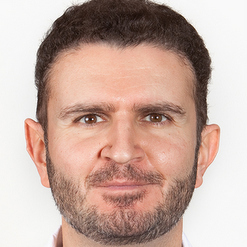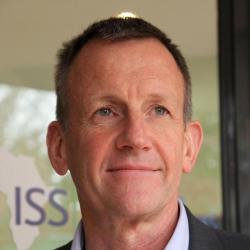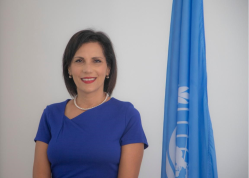

Past Event
Content from the Brookings Doha Center is now archived. In September 2021, after 14 years of impactful partnership, Brookings and the Brookings Doha Center announced that they were ending their affiliation. The Brookings Doha Center is now the Middle East Council on Global Affairs, a separate public policy institution based in Qatar.
The Brookings Doha Center (BDC) hosted a webinar discussion on November 11, 2020 on the impact of the United Nations (U.N.) on the Middle East. This discussion revolved around the relevance of the U.N.’s mandate and charter in this day and age. Particular attention was given to the alternatives that must be considered to address conflict mediation in the Middle East and North Africa (MENA) region. The panel consisted of a group of distinguished scholars and experts, including: Laila Baker, regional director for Arab states at the U.N. Development Coordination Office; Habib Nassar, director of policy and research at Impunity Watch; and Jakkie Cilliers, founder of the Institute for Security Studies. Noha Aboueldahab, fellow at the BDC, moderated the event.
Laila Baker opened the discussion by highlighting that the overarching mandate of the U.N. is to maintain global peace and security. She noted that this cannot be achieved without the economic and political will of member states to invest in good governance and equitable development. She stated that the U.N. is the only global entity that represents an impartial body, which can provide for both short and long term solutions. For instance, during the COVID-19 pandemic, while many international organizations have turned their backs on vulnerable populations, the U.N. has stayed and delivered. Furthermore, Baker emphasized the need to return to multilateralism in a complex world, where the political landscape has shifted to individualism. In addition, she discussed three major pillars of reform for the U.N. Firstly, she noted the increasing collaboration between the peace and security, development, and political divisions. Secondly, she stated that the U.N. has revised the way it does business on the ground, in that it places greater attention on the 2030 agenda and sustainable development goals. Finally, she noted the reform process considers the financing for development. In this regard she stated that the U.N. is a place where dialogue may ensue between citizens and government, and civil society and other arms.
Habib Nassar added that the world would be in a much worse place had it not been for the U.N. However, he also argued that in many instances the body, more specifically the Security Council (UNSC), has failed to protect civilians in the MENA region. This lack of protection has expanded to humanitarian affairs and the fact that humanitarian aid today must be bargained for indicates a serious crisis. Nassar also discussed the U.N.’s work at the field level and claimed that the body’s top-down and technocratic approach in engaging with local actors proves to be very rigid and highly political. He noted a lack of efficacy on the part of the UNSC and discussed alternate avenues that have been successful, such as taking matters to the General Assembly, which has proven to be a more democratic body. Finally, Nassar emphasized the need to be more creative in the process to bring about reforms, especially given the current national and foreign policies of several states. One of his proposed reforms included improving engagement of U.N. officers with civil society. He contended that the U.N. is afraid to get involved with civil society for fear of upsetting local governments.
Jakkie Cilliers discussed the UNSC in greater depth. He noted that the representation system and power structures that dictate its functions are stuck in 1945. He stated that the P5 no longer represents all of the most significant world powers. China and the United States remain essential, however, the other three members less so. According to Cilliers, currently the U.N. is comprised of 190 members that coexist and compete in a world different to the one of 1945, reflecting a major shift in material and military power. These new dynamics demonstrate a certain multi-polarity that is not being addressed through multilateralism. Moreover, Cilliers identified challenges of the 21st century to be the pandemic, climate change and increasing threats to peace and security. The UNSC lies at the heart of the global security architecture and without an end to permanent seats and veto power the council will be unable to tackle such issues. In this regard, the only way forward is to develop detailed proposals that better situate the UNSC in the 21st century. Such proposals must be negotiated outside of the inter-governmental negotiating forum and then tabled to the General Assembly as a non-negotiable amendment to the U.N. charter.
During the question and answer session, panelists focused on the U.N. as a reactive force, humanitarian aid, and the impact of member states on the body’s efficacy. Baker noted that the U.N. is quite responsive to humanitarian crises such as floods or forced migration, and that there is no other global entity better positioned to handle such matters. Moreover, she expressed concern that the duration of engagement in peace and security operations has increased to an average of 21 years. Nassar noted that while the U.N. is not directly responsible for the weaponization of humanitarian aid, it has to a certain extent enabled the process. On the one hand it is in violation of international law to administer humanitarian aid without coordinating with national authorities, on the other hand, it is also in violation for states to obstruct the delivery of such relief. Cilliers concluded noting that the U.N. can do only what its member states allow it to monetarily and politically.




Noha Aboueldahab
August 23, 2021

August 23, 2021

Yasmina Abouzzohour
August 19, 2021